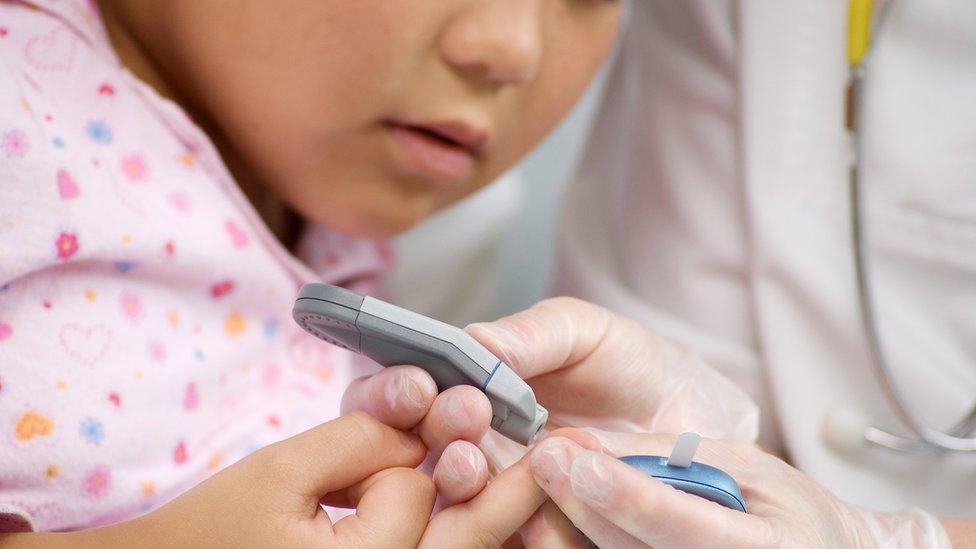Type 1 diabetes trial to identify at-risk children
- Published

Taking blood from a finger prick test
Researchers are recruiting 20,000 children for a trial to try to identify those at high risk of developing type 1 diabetes.
If left undiagnosed or untreated, the condition can lead to life-threatening complications.
The trial, led by the University of Birmingham, could mean access to new treatments for children at high risk.
The researchers say it may also offer insights that could make screening for type 1 diabetes a possibility.
Type 1 diabetes is an autoimmune condition where the immune system attacks and destroys cells in the pancreas which produce insulin.
Insulin is crucial because it moves energy from food from the blood to the cells of the body - without it, the body cannot function properly.
Approximately 29,000 children in the UK currently have type 1 diabetes, out of a total of about 400,000 people. For them, managing the condition involves injecting insulin and testing blood glucose levels regularly.
The condition is very different to , which is often linked to poor diet or an unhealthy lifestyle.
which will analyse their blood - through finger prick and vein tests - for autoantibodies.
These are linked to the development of type 1 diabetes. Those with two or more autoantibodies have an 85% chance of having the condition within 15 years, and are almost certain to develop it in their lifetime.
Parth Narendran, professor of diabetes medicine, and Dr Lauren Quinn, clinical research fellow at the University of Birmingham, said there was a need to explore if screening children for type 1 diabetes in the UK would be possible in the UK.
"Screening children can reduce their risk of DKA (diabetic ketoacidosis) at diagnosis around fivefold and can help them and their families settle into the type 1 diagnosis better," they said.
DKA is a life-threatening complication of type 1 which can occur when diagnosis does not happen quickly.
Rachel Connor, director of research partnerships at JDRF UK, which is co-funding the study, said new drugs that target the immune system were progressing through trials.
"We are demonstrating that it is possible to delay the need for intensive insulin treatment in those most at risk. When these drugs become available in the UK, we need to be ready to use them straight away," she said.
Dr Elizabeth Robertson, from Diabetes UK, which also funded the study, said: "Extra years without the condition means a childhood no longer lived on a knife-edge of blood sugar checks and insulin injections, free from the relentlessness and emotional burden of type 1 diabetes."
Related topics
- Published11 July 2017